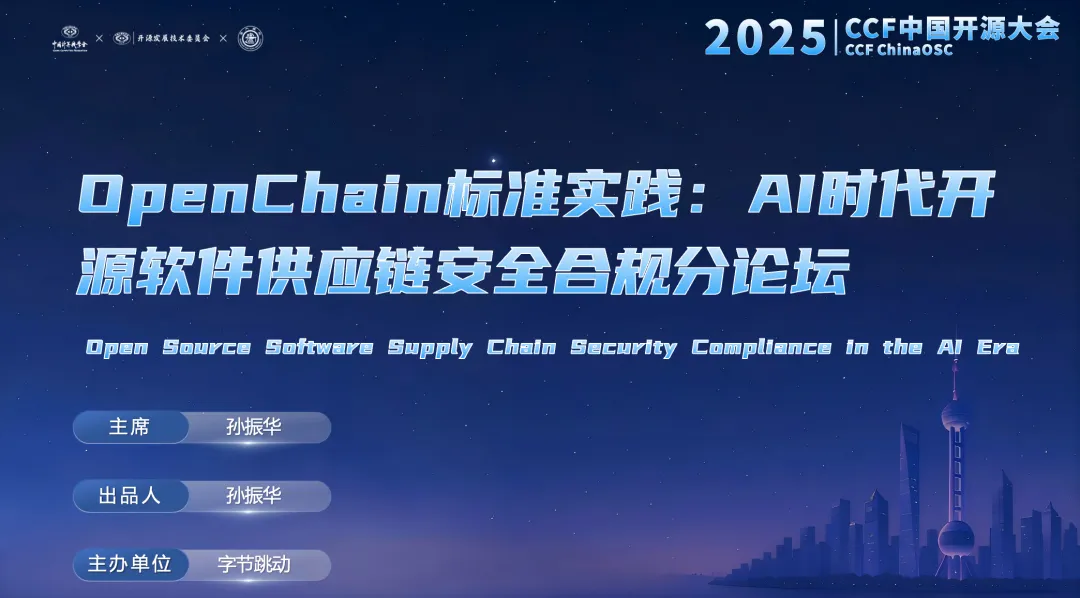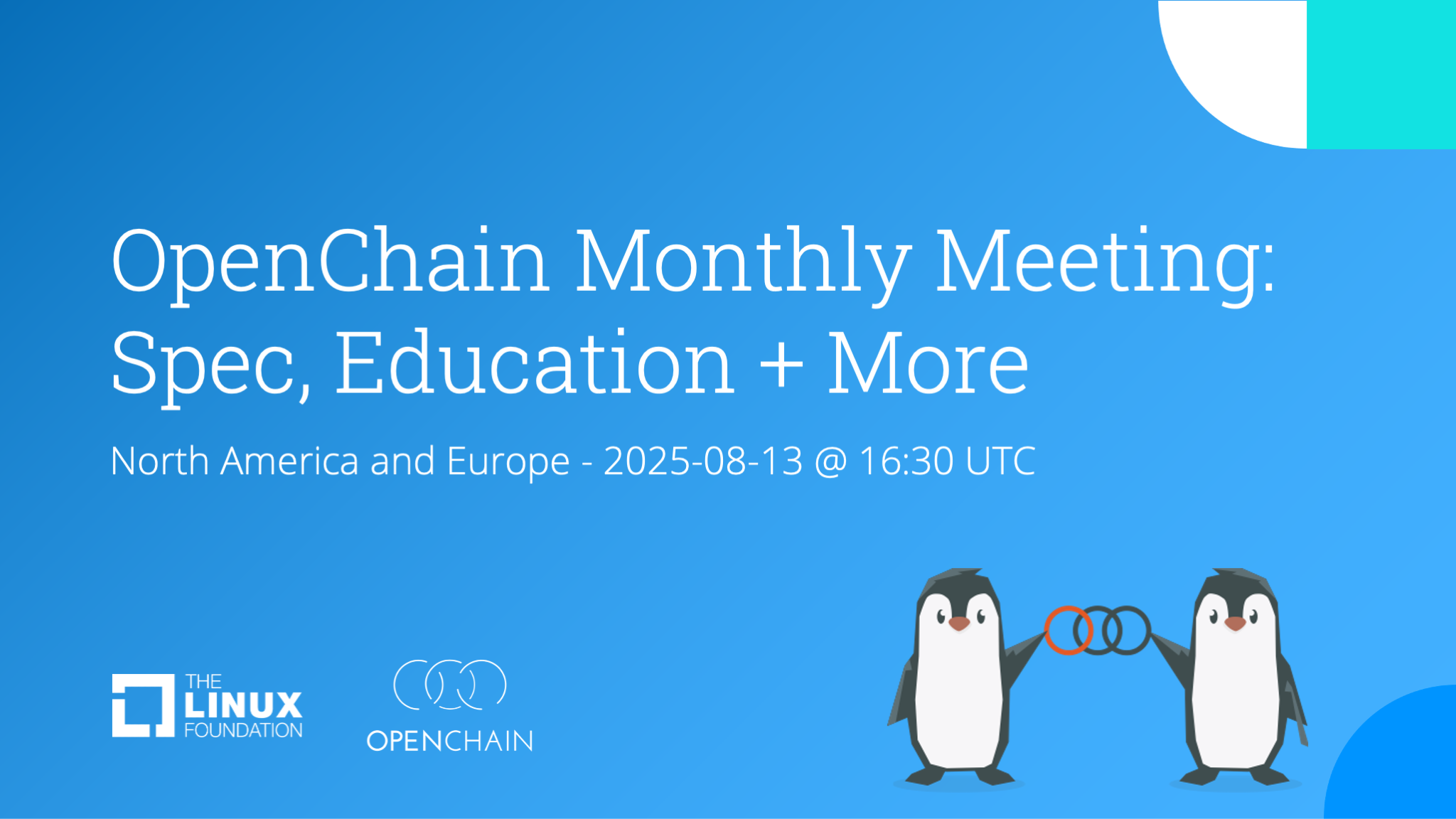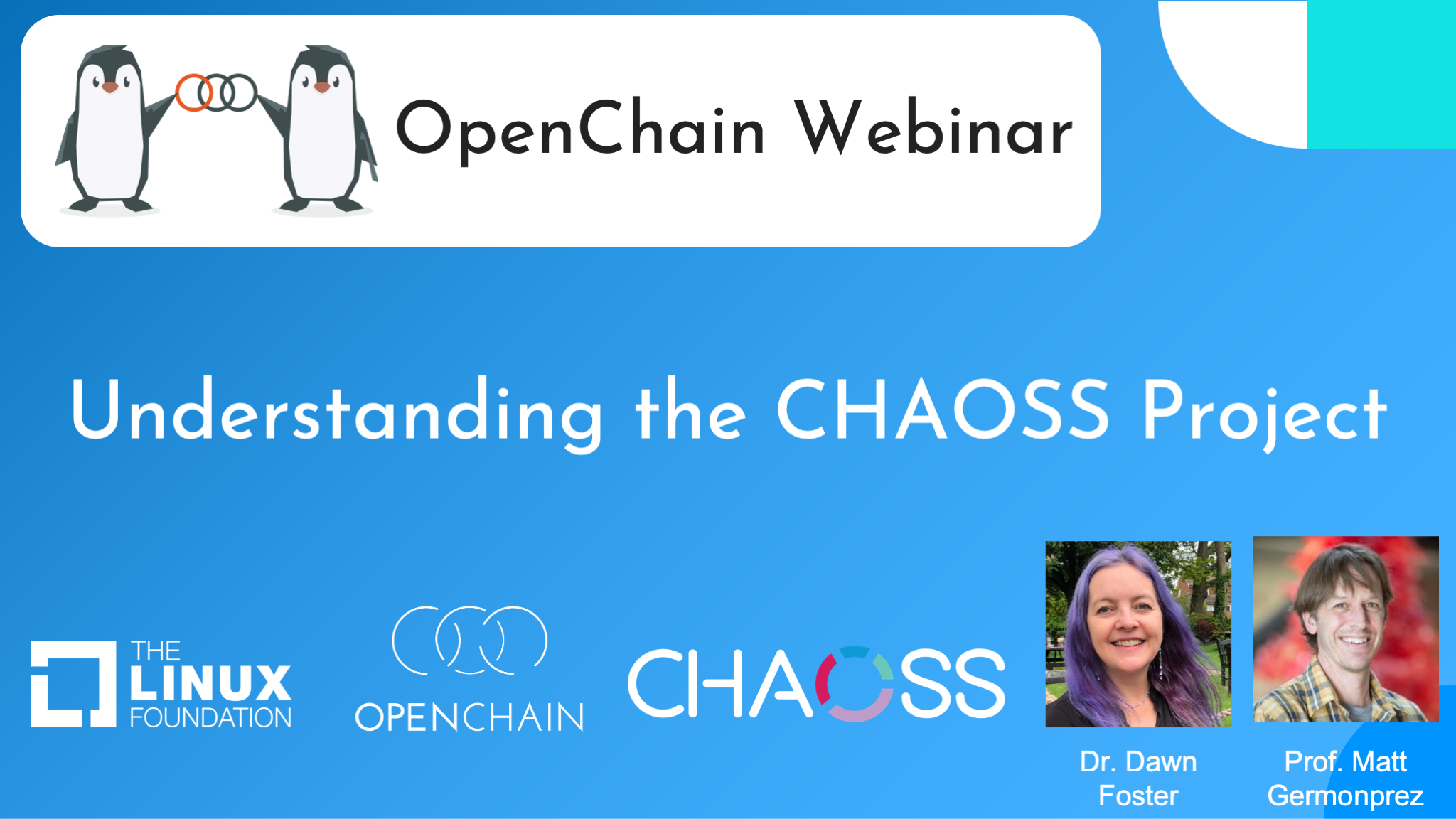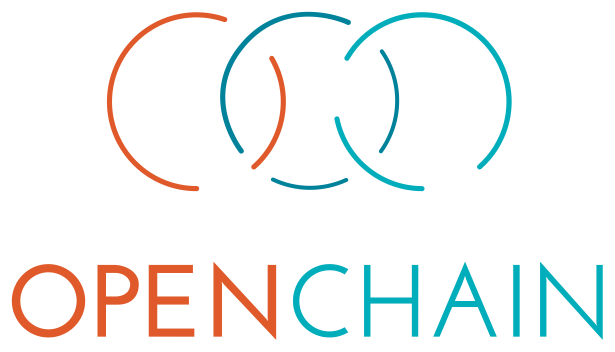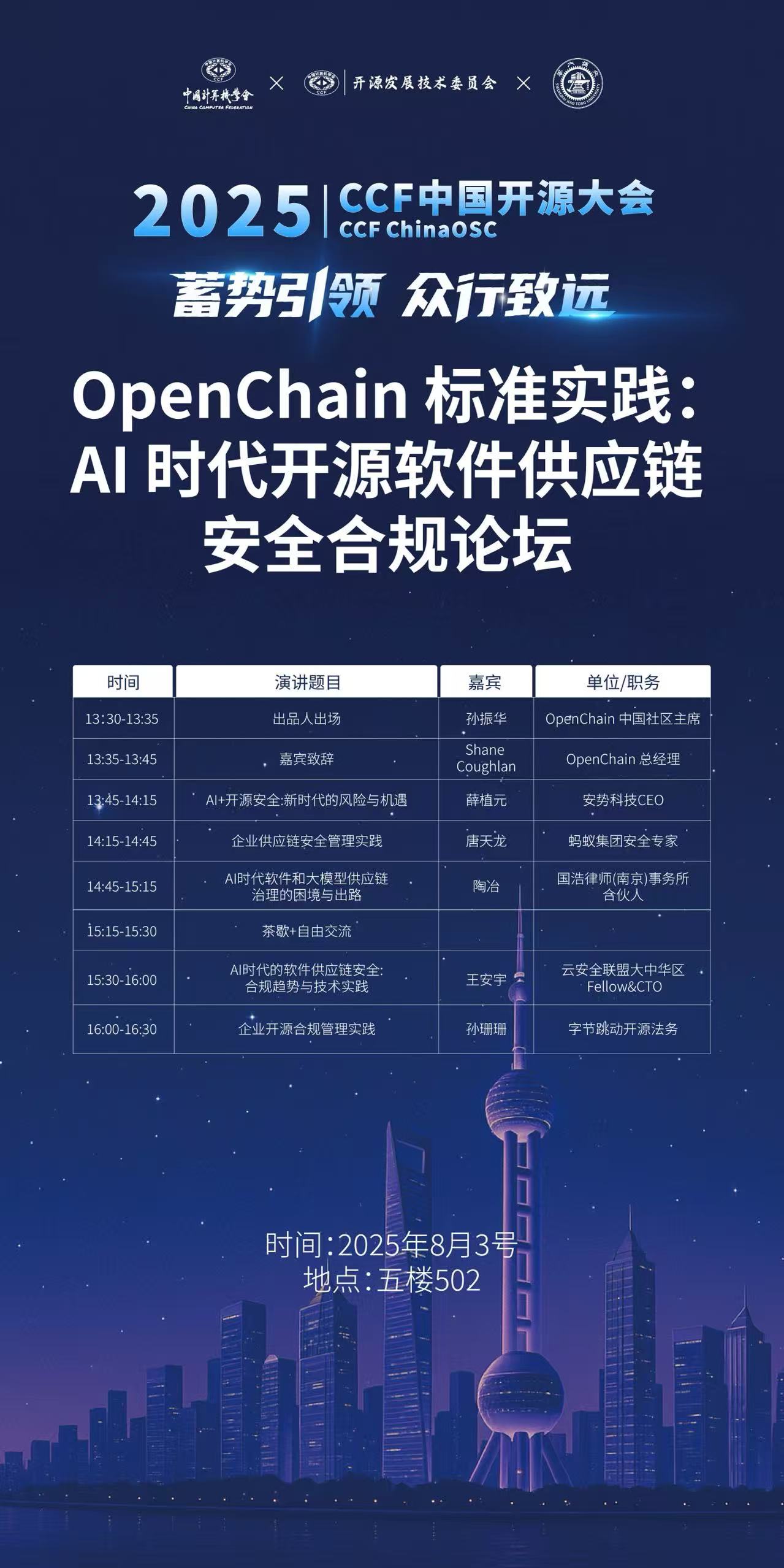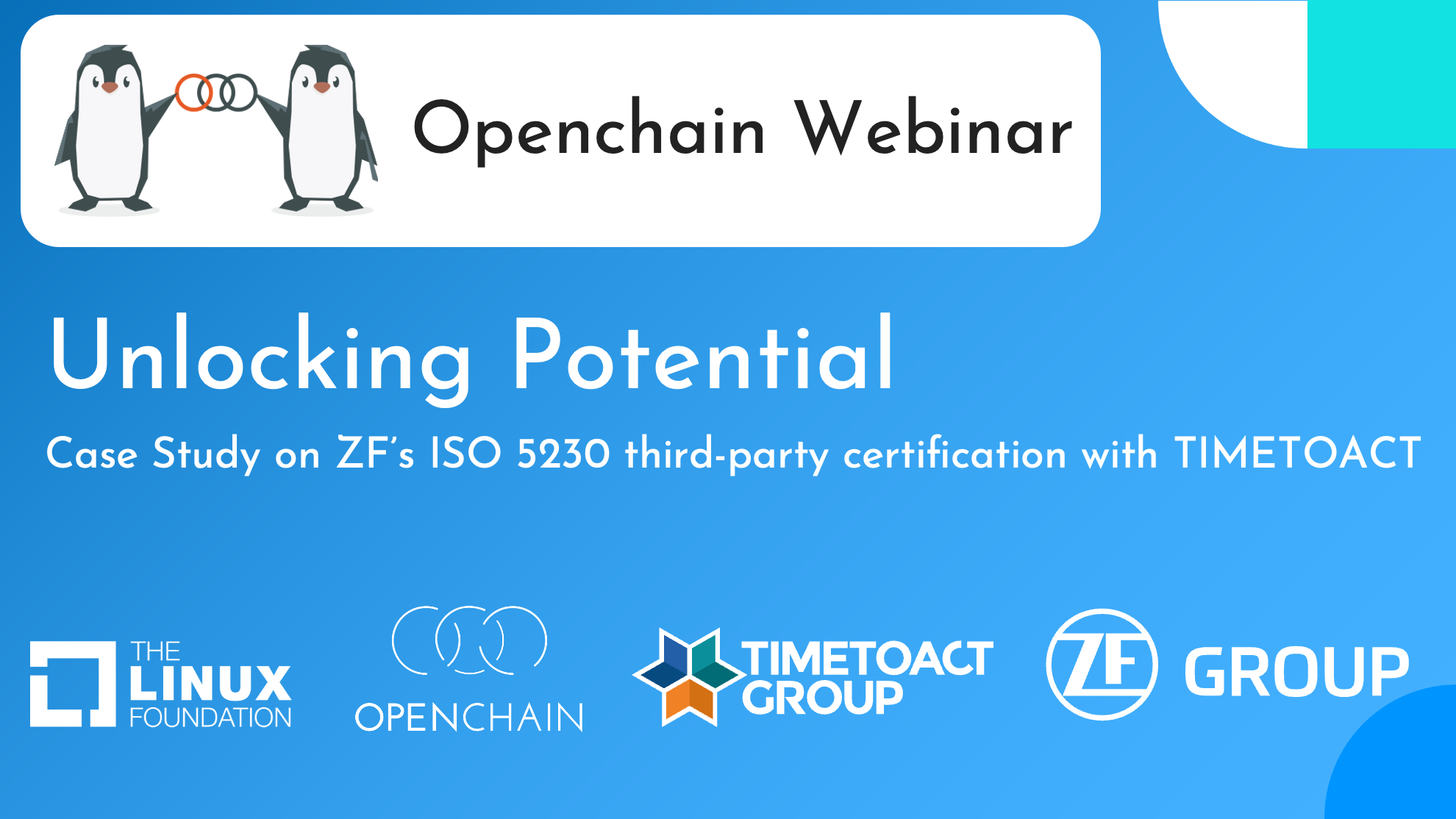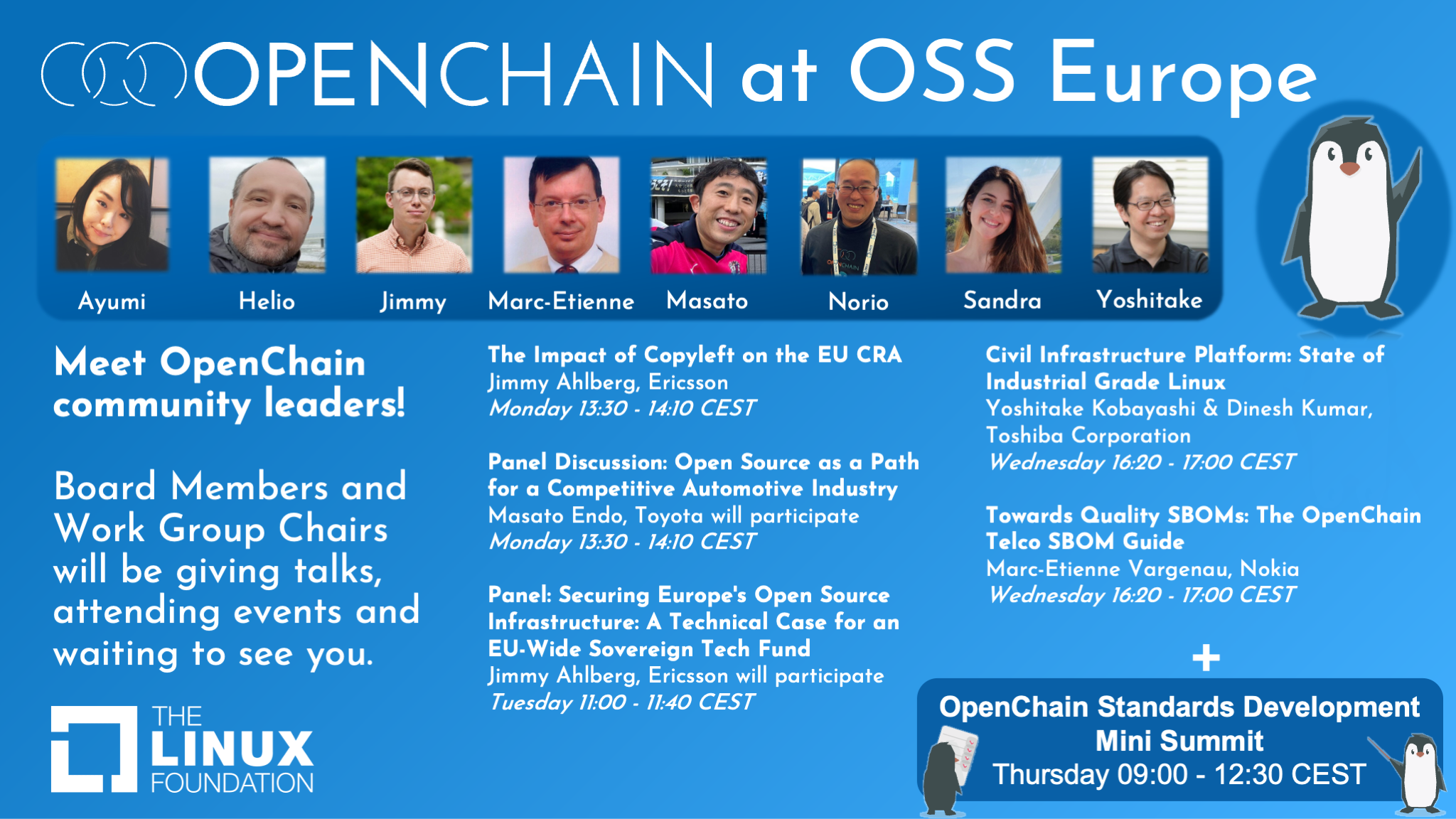
Get To Know Our Thought-Leaders:
The OpenChain Project will have a substantial presence at Open Source Summit Europe next week! Catch talks and panels from our Board Members and Work Group Chairs, and have a chance to ask questions or share ideas.
Learn More:
+ The Mini-Summit on the 28th of August will be Special:
The OpenChain Mini-Summit will feature a great many of our current board members and chairs in one place, ready to share their knowledge and experience with both beginners and experts in license, security and regulatory compliance.
Get to know:
☑️ Ayumi Watanabe, Hitachi Solution
☑️ Helio Chissini de Castro, CARIAD
☑️ Jimmy Ahlberg, Ericsson
☑️ Jonathan Torres, META
☑️ Marcel Kurzmann, Bosch
☑️ Marc-Etienne Vargenau, Nokia
☑️ Masato Endo, Toyota
☑️ Norio Kobota, Sony
☑️ Sandra Hermoso Rodriguez, Arm
☑️ Taiki Kawamura, Honda
